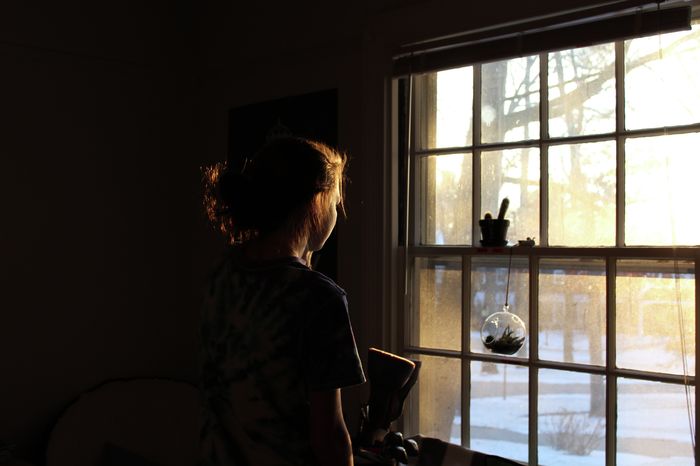The other kind of imposter syndrome
Asha Kaur Birdi argues that sometimes feeling like a fraud stems from more than an inferiority complex

Imposter syndrome is far from a new phenomenon in Cambridge. Self-doubt and wondering what fraudulence you committed to get here is a quintessential part of the experience. Even if you happen to be one of the lucky few blessed with an abundant supply of serotonin and self-esteem, everyone has had that one existential supervision that made them re-evaluate their life as they knew it.
Whenever I bring up my Mike Ross-esque sense of personal illegitimacy, I am reminded that expectations are extraordinarily high here, the culture is competitive and I shouldn’t be so hard on myself. I earned my place. I am met with reassurance and told to stifle the gut instinct that sometimes screams “you should not be here!” But what if I am the imposter? Are we all just too scared to admit it?
The more I reflect on my first two terms at Cambridge, the more I cannot help but feel that historical truth may lie at the unforgiving heart of my imposter syndrome. It is no secret that the University sought to serve privileged interests from its inception – and the legacy of this framework that upheld a white, upper-class elite is still felt today. Even though huge strides have been made to improve diversity on all fronts, the phantoms of class inequality, prejudice and racism continue to lurk these halls. I am reminded that the percentage of private school pupils admitted in 2021 was quadruple the proportion of the national population which they constitute. Analysis found that, as recently as 2019, Cambridge accepted more Etonians than black male students.
“I cannot help but feel that historical truth may lie at the heart of my imposter syndrome”
For me however, the sense of being an imposter is not just about academics. It manifests in questions about which – capital S – School you went to, in May Ball tickets which cost the same as a small holiday, in uneasy stares and awkward silences when race gets brought up. Beyond just admissions statistics, the ghosts of the past are not so easily shaken off. Sometimes, I am all too aware that I am taking up space at an institution that was never for me.
I cannot speak for every marginalised student, nor do I aim to, but I feel as though there is a distinctive binary that students from traditionally underrepresented backgrounds must navigate at places like this. Your first option is to embrace the “imposter” and make room for yourself in well-established, white-dominated spaces – whether that be a sports team, drinking soc, the Union or even this paper. The second is to set up spaces of your own that affirm the belonging of people like you.
Let me give you a real-world example. I decided to go with the first option when I joined Varsity, a place where I felt like almost no-one looked like me. While it has been one of the most fruitful experiences of my time at Cambridge (and I would encourage everyone to give it a go!), sometimes I was overcome with the sense that, at any given moment, someone would out me as the fraud I was; that my writing would in some way confirm the belief that people like me don’t belong in spaces like this. I braved the unease, and I am (mostly) happy I did.
On the other hand, Tia-Renee, a friend and fellow Caian, rejected the first option in order to save herself the discomfort and self-explanation that inevitably comes with “infiltrating”. Some may see this as self-inflicted restriction, but is it not understandable to want to protect yourself in a place with such a long history of exclusion? We are not, after all, obligated to wrestle with the phantoms of the past. Instead, she opted to co-found The Black Artist’s society, a space for “black heritage creatives in Cambridge to collaborate, network and have their work showcased” in defiance of a perceived lack of opportunity for representation in the Cambridge creative scene. Nevertheless, this too comes with its challenges, particularly that of starting something afresh.
There is no one-size-fits-all solution to counter feelings of inferiority or fraudulence for minority students at Cambridge but I don’t think we should be so quick to shut down expressions of “imposter syndrome” as complete fiction. Rather, I think we could all gain something from understanding the history that first othered us as “imposters” and the present-day manifestations of this culture. Whether students from disadvantaged backgrounds choose to take or make space, I am proud of the steps being taken to challenge outdated systems within the University. I hope we keep making our voices heard, because everyone benefits from inclusivity; the world is a better place when we all feel safe and welcome.
 News / Eight Cambridge researchers awarded €17m in ERC research grants27 December 2025
News / Eight Cambridge researchers awarded €17m in ERC research grants27 December 2025 News / Clare Hall spent over £500k opposing busway 24 December 2025
News / Clare Hall spent over £500k opposing busway 24 December 2025 Comment / League tables do more harm than good26 December 2025
Comment / League tables do more harm than good26 December 2025 Comment / The ‘class’ of Cambridge24 December 2025
Comment / The ‘class’ of Cambridge24 December 2025 News / Caius mourns its tree-mendous loss23 December 2025
News / Caius mourns its tree-mendous loss23 December 2025









